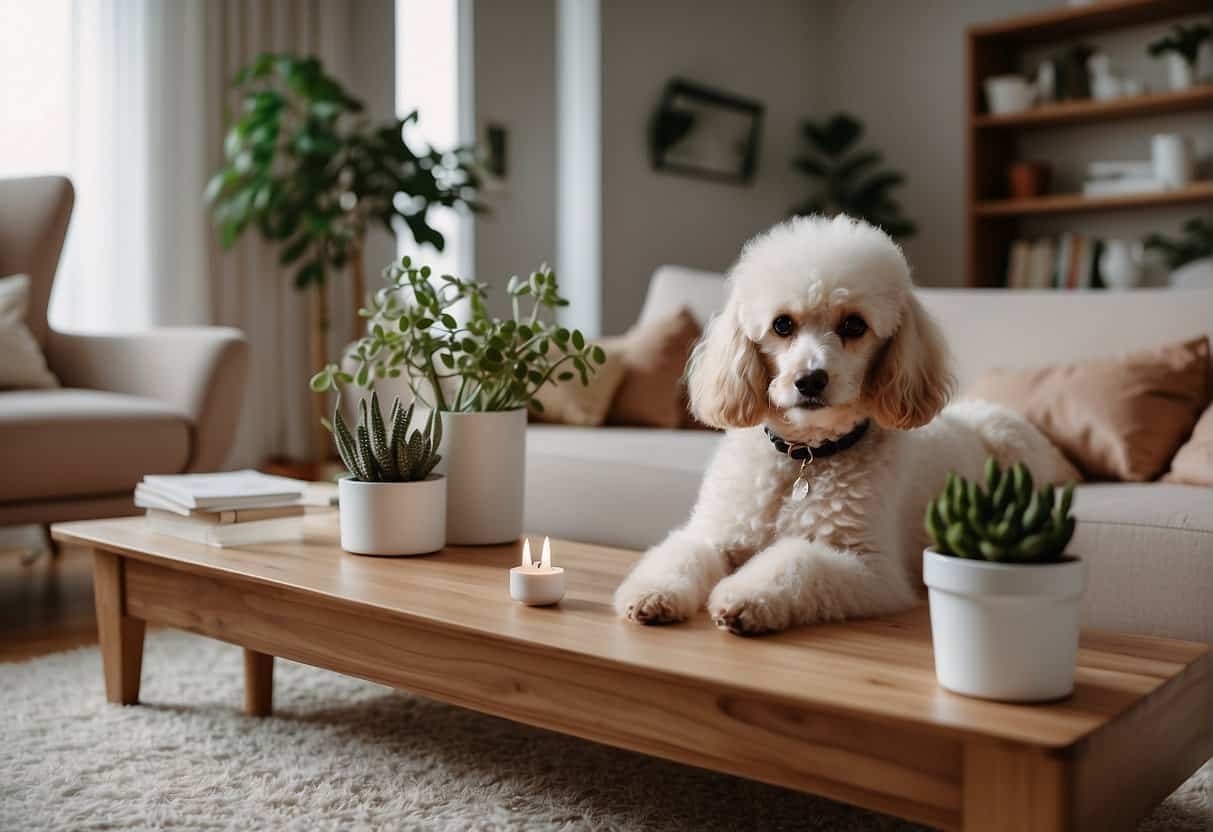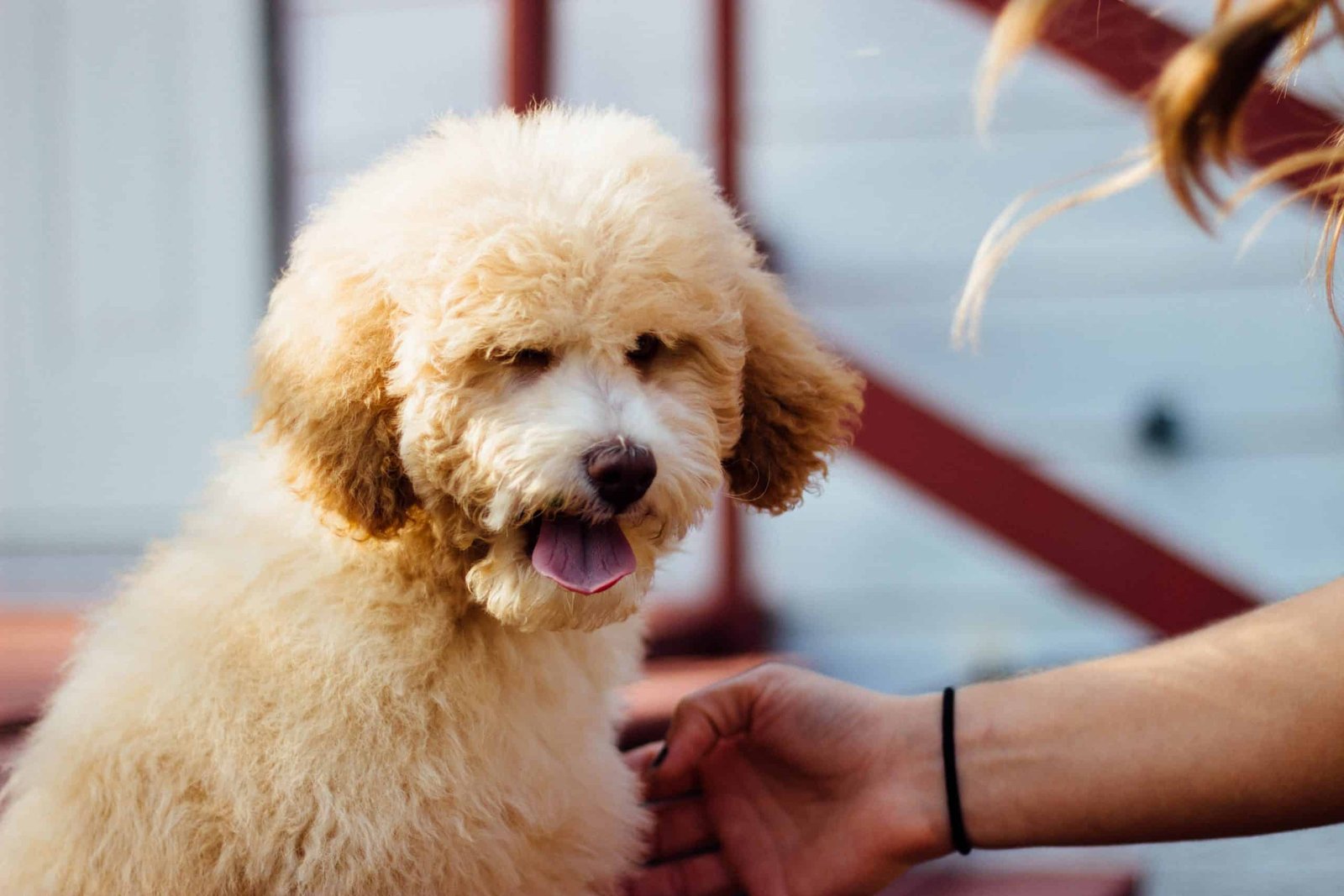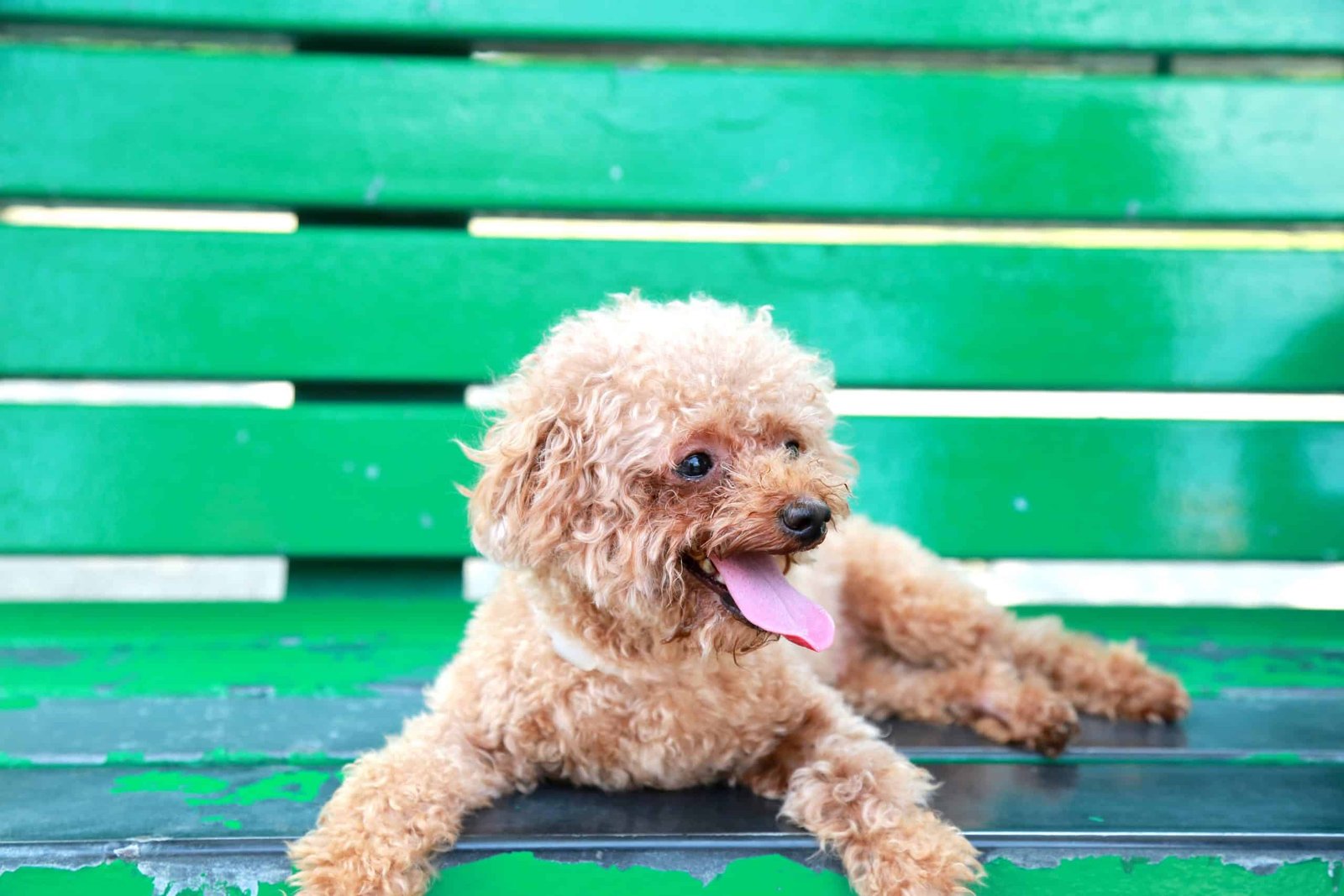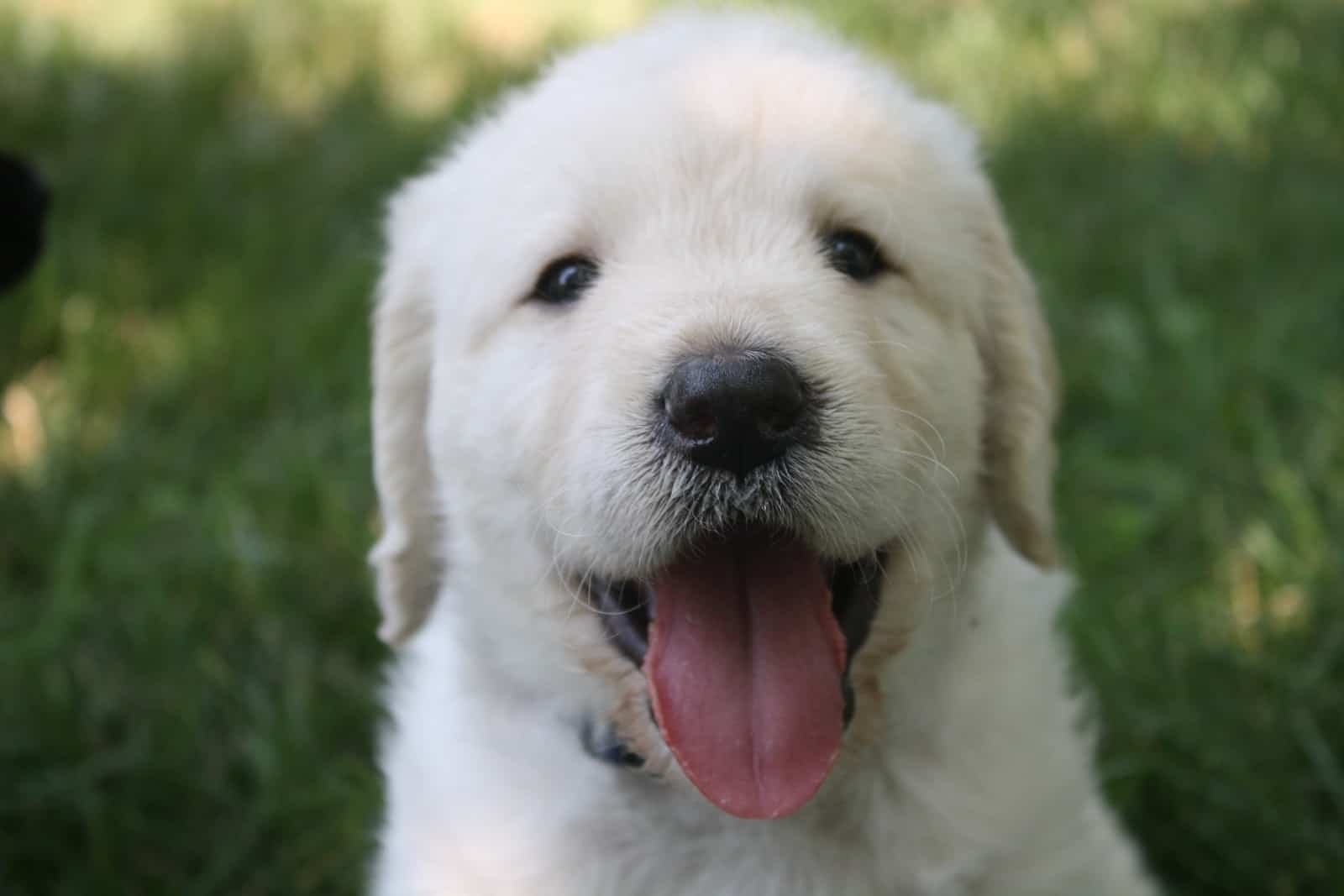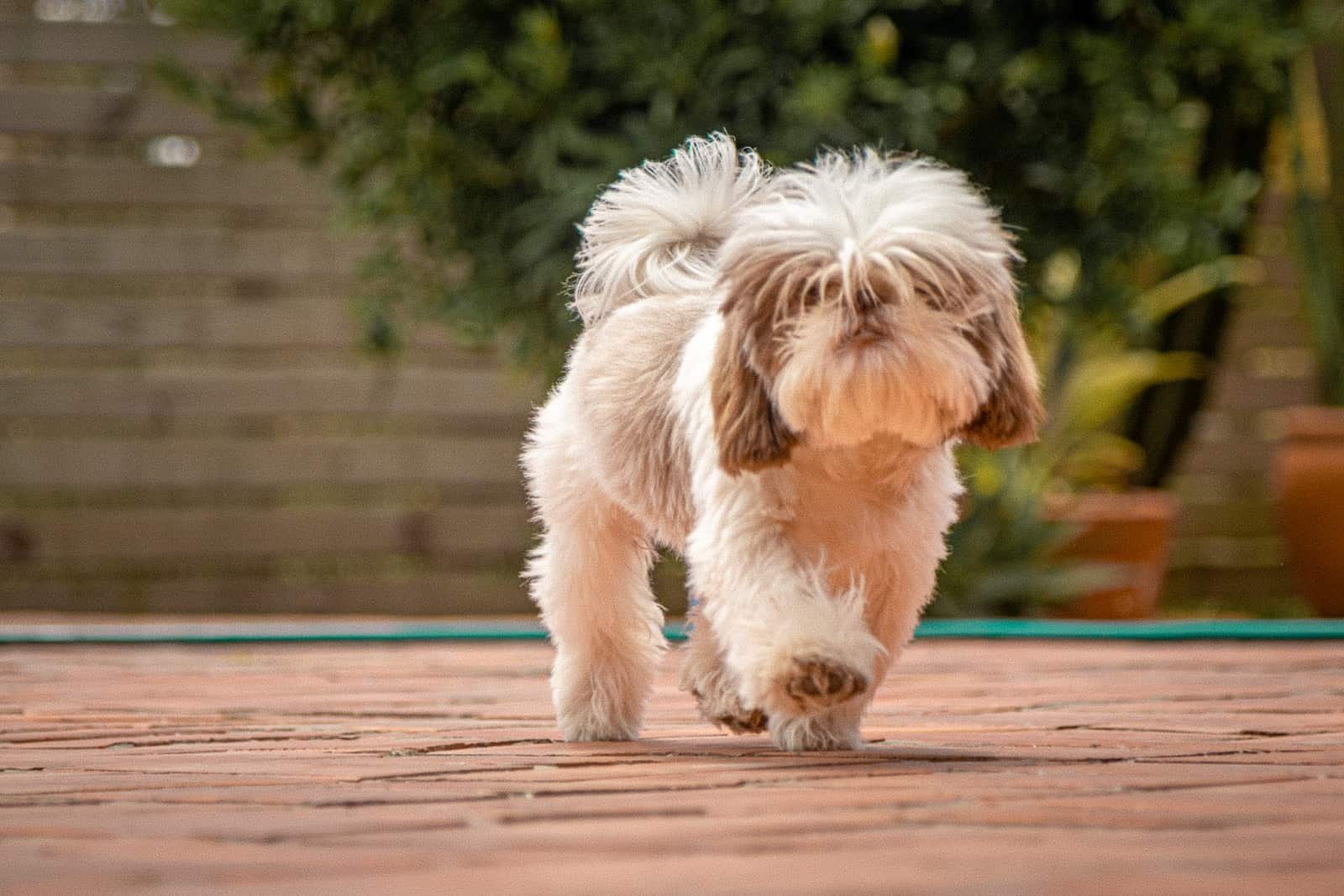
Poodles come in all shapes and sizes, but nothing quite compares to the charm of a small poodle. These pint-sized pooches are some of the most popular dog breeds because of their intelligence, loyalty and irresistibly cute appearance. Whether you’re looking for a furry companion or a new show dog, small poodles will certainly fit the bill! In this article, we’ll explore the unique characteristics of these precious pooches – from physical appearance and care to temperament, health and more. So if you’re ready to learn all about small poodles, let’s dive in!
Overview of Small Poodle Breeds
Small poodles come in three main sizes – miniature, toy and standard. Miniature poodles are the smallest of the bunch, standing just 10 to 15 inches tall at the shoulder and weighing around 10 to 15 pounds. Toy poodles are slightly bigger than miniatures, often reaching heights of up to 11 inches and weighing between 4 to 9 pounds. The largest of all is the standard poodle, which stands 15 inches or taller and can weigh anywhere from 45 to 70 pounds. No matter their size, all small poodles share a signature curly coat that comes in many colors – including cream, white, apricot, black and brown. They also have expressive eyes and alert ears that perk up when they hear something interesting! Small poodles require regular grooming to keep their coats healthy, as well as daily brushing and cold water baths to prevent matting.
Besides their physical appearance, small poodles are known for being highly intelligent dogs with a lot of energy. To keep them mentally stimulated, they need plenty of playtime or activities like agility or obedience training. People who suffer from allergies may be happy to know that small poodles shed little fur or dander – making them an excellent choice for those looking for a hypoallergenic breed.
When it comes to health conditions, small poodles are one of the healthier breeds out there. However, some can develop issues such as heart disease or dental disease if not taken care of properly, so it’s important for owners to provide their pup with regular exercise and proper nutrition throughout its lifetime. Some Toy Poodle varieties may be prone to developing legg-calve-perthes disease due their small stature.
Small poodles are an excellent choice for those looking for a low-maintenance, hypoallergenic breed with plenty of character and intelligence. With the right care and attention, they can make loving and loyal companions that bring joy to any home. But their popularity doesn’t stop there – next we’ll explore why smaller poodles have become increasingly popular over the years!
Popularity of Smaller Poodles
Smaller poodles have become increasingly popular over the years because of their low-maintenance grooming needs, hypoallergenic coats and healthy life expectancy. Miniature and toy poodles are especially popular as they don’t need a lot of exercise or space to thrive, making them an ideal choice for people living in apartments or with limited time for daily walks. Smaller poodles are known for being highly intelligent breeds that require lots of mental stimulation, making them great companions for active lifestyles. Plus, the signature curly coat of small poodles can come in a variety of colors, adding even more charm and character to these popular furry friends. From families looking for a loyal pet to singles who want a smart companion by their side, it’s no wonder why smaller poodles continue to be one of the most sought-after breeds around!
Listicle of Small Poodles
Small poodles are one of the most popular breeds of dogs, renowned for their intelligence and low-maintenance grooming requirements. Miniature and toy poodles are especially popular as they don’t need a lot of exercise or space to thrive – making them an ideal choice for people living in apartments or with limited time for daily walks. Their signature curly coats come in a variety of colors and only require regular brushing and occasional bathing. This breed is also known for having a healthy life expectancy, as long as they get enough daily exercise and activity level. Smaller poodles are hypoallergenic, which makes them an excellent choice for people with allergies. As long as owners stay aware of potential health conditions such as heart disease, dental disease, adrenal glands problems and Legg-Perthes Disease, small poodles can make wonderful lifelong companions.
From intelligence and hypoallergenic qualities to low-maintenance grooming requirements, small poodles make wonderful lifelong companions – but their physical appearance and care needs are just as important for owners to be aware of.
Physical Appearance And Care
Small poodles come in three sizes: toy, miniature and standard. Toy poodles can range from 4 to 7 inches tall, while miniature and standard poodles typically range from 10 to 15 inches and 15-23 inches tall, respectively. The smaller the poodle is, the more daily exercise they require to stay healthy and happy. While they all have signature curly coats, small poodles come in a variety of colors such as apricot, silver, white, black and sable.
Regular grooming is key to keeping your small poodle looking his or her best. Daily brushing is essential for preventing mats and tangles that can cause discomfort if left untamed. Bathing should be done only when necessary with warm water – never cold water – as it can lead to skin irritation and other issues. Besides regular grooming activities, mental stimulation is important for this intelligent breed, so consider enrolling them in agility classes or teaching them basic commands like sit or stay. With adequate physical activity and proper care, small poodles make wonderful companions for life!
Height, Weight
Small poodles come in three sizes: toy, miniature and standard. Toy poodles can range from 4 to 7 inches tall and typically weigh between 4-6 pounds. Miniature poodles have a height of 10-15 inches and weigh between 15-17 pounds, while the standard size ranges from 15 to 23 inches tall and weighs up to 40 pounds. The smaller the poodle is, the more daily exercise they require to stay healthy and happy. It’s important to keep their weight in check as too much can lead to health problems such as joint issues or heart disease. With adequate physical activity and proper care, small poodles make wonderful companions for life!
Grooming
Grooming small poodles requires regular care and attention. Poodles have a thick curly coat that needs to be brushed daily to prevent matting and tangling. A slicker brush is best for brushing out their coat, as it helps remove dead hair and any mats. If your poodle has a longer coat, you can use scissors or an electric clipper to keep it neat and tidy. To keep their nails short, be sure to trim them regularly using special dog nail trimmers. Bathing your small poodle every few weeks will help keep their skin healthy. When bathing them, use a shampoo specifically made for dogs as other human shampoos can dry out the skin and strip away natural oils from the coat. With regular grooming, small poodles will look great and feel even better!
Characteristics of Small Poodles
Small poodles are one of the most popular breeds of dogs because of their intelligence, loyal and affectionate nature, and low-maintenance coats. Miniature poodles typically stand between 10 and 15 inches tall, while standard poodles can reach up to 24 inches in height. This breed has a curly coat that may come in a variety of colors such as black, white, brown, apricot, or gray. The coat requires daily brushing to keep it free from mats and tangles.
Besides their unique look, small poodles are known for being an intelligent breed with a high activity level. They require both physical exercise and mental stimulation on a daily basis or they may become bored easily. Because of their active lifestyle, small poodles are prone to certain health conditions such as heart disease and legg-calve-perthes disease, mentioned previously. Therefore, it is important for pet owners to be aware of these potential issues so that proper care can be taken for prevention or treatment if needed.
Overall, small poodles make great companion pets for people of all ages who have the time and energy to meet the needs of this intelligent breed. With consistent training, daily exercise and mental stimulation, regular grooming sessions, and healthy diet full of cold-water fish oil supplements, they can live a long healthy life with an estimated life span between 13-15 years.
Small poodles are the perfect companion for anyone looking for a loyal, intelligent, and affectionate pet. Get ready to learn more about this breed’s playful nature in the next section!
Playfulness Level
Small poodles are known for their high level of playfulness. They have an enthusiasm for activities like tug-of-war and fetching that won’t waiver even as they age. While some breeds will become content to just relax on the couch with you, small poodles will be ready to join in on the fun at any opportunity.
Besides physical activity, small poodles also require mental stimulation in order to stay healthy and happy. They can quickly become bored if not given the proper amount of attention and care, so it is important for pet owners to invest time in playing challenging games such as hide and seek, or teaching new tricks.
Whether it’s chasing a toy around the yard or learning a new game, small poodles are always eager to please their owners by showing off their playfulness skills. With consistent training, exercise, and mental stimulation, this breed can easily live a long healthy life with an estimated life span between 13-15 years.
Trainability Level
Small poodles are an intelligent breed that has the potential to be highly trainable. With consistent and positive reinforcement, small poodles can learn basic commands such as sit, stay, come, and heel quickly. They can be taught more complicated tasks like fetching items or performing tricks with a few repetitions.
However, it is important to remember that each individual dog has its own personality, which will determine how successful the training will be. While some dogs may excel at learning new commands right away, others may take longer or need more repetition to understand certain lessons.
No matter the difficulty level of training your small poodle, patience and dedication are essential components when teaching any dog tricks. When done properly with consistency and positivity, these smaller breeds can become well-trained companions that follow instructions with ease.
Energy Level
Small poodles are lively and energetic dogs that require regular exercise and mental stimulation to stay healthy and happy. Daily walks or playtime in a secure area are the best way to keep these breeds active. They will benefit from running, jumping, and other forms of physical activity daily.
Mental stimulation is just as important for small poodles as physical activity. Learning new tricks or playing interactive games with your pup can help them stay sharp and alert. Keeping their minds active will also reduce boredom, which can lead to destructive behaviors like chewing or barking excessively.
Overall, small poodles have an above-average energy level that must be met with ample amounts of exercise and mental stimulation. With proper care, these breeds can be healthy, content companions that thrive in any home environment.
Barking Level
Small poodles are known for their intelligence and loyalty, but they can also be quite vocal. Barking is a natural behavior for these breeds, and they may bark at strangers or unfamiliar noises. Some small poodles are more prone to barking than others, but it is important to keep in mind that this behavior can be trained out of them with consistent reinforcement.
When small poodles bark excessively, it could be a sign that something isn’t right. Lack of exercise or mental stimulation can cause them to become bored and restless, which can lead to excessive barking. Other causes could include anxiety or fear. If you think your pup’s barking is out of the ordinary, it’s best to consult a veterinarian or animal behaviorist for advice on how to address the issue.
Overall, most small poodles will bark occasionally when startled or excited, but with proper training and care, these breeds should not bark excessively. With patience and consistency in reinforcement techniques, owners can ensure their beloved companion remains happy and well-behaved without becoming too vocal.
Temperament
Small poodles are known for their intelligence, loyalty, and gentle disposition. They make excellent companions and can easily form strong bonds with their human family. They’re also highly trainable and eager to please, making them an ideal breed for novice dog owners.
Small poodles are also incredibly adaptable and easy to care for. They usually get along well with other pets as long as proper introductions are made, and can often be seen happily playing with children.
They’re a low-maintenance breed but require daily exercise and regular grooming to stay healthy and prevent matting of the coat. Despite their small size, they have plenty of energy, so it’s important to provide plenty of physical activity for them to burn off some steam!
Overall, small poodles make great family pets because of their pleasant temperament, intelligence, versatility and adaptability. With patience and consistency in training, they can become delightful companions who love nothing more than being involved in all aspects of family life!
Good With Young Children
Small poodles are one of the most popular breeds due to their intelligence and loyalty. They’re also incredibly family-friendly, making them brilliant companions for young children. With patience and consistency in training, small poodles learn quickly and can become accustomed to any environment.
They have a gentle disposition and can easily form strong bonds with their human family. Plus, they are highly trainable and eager to please, which makes them perfect for novice dog owners or people with allergies.
Small poodles are low maintenance but need regular exercise and grooming to stay healthy. They don’t require too much space to run around as long as they get daily exercise like walking or playing fetch.
Their mild temperament also makes them good with other pets in the household once proper introductions are made. Their intelligence allows them to be mentally stimulated, which is important for their overall wellbeing.
Overall, small poodles make excellent companions for young children since they’re intelligent, loyal, and gentle natured – not to mention adaptable and easy to train! With plenty of love, patience and daily care they will become delightful members of any family!
Good With Other Dogs
Small poodles are a highly intelligent breed, making them great companions for young children. They’re also incredibly friendly and can usually get along with other dogs if proper introductions are made. While they may be timid and shy around unfamiliar dogs, their socialization from an early age can help them become more confident and comfortable in such settings.
They’re naturally curious, so they love exploring new environments and meeting new people. This makes them great playmates for other dogs and children. As long as they’re given plenty of socialization and mental stimulation with regular exercise, small poodles can get along well with other pets in the household.
Although they might not be the best guard dogs because of their timid nature, their loyalty means that they will protect their family when needed. Overall, small poodles are good-natured animals who thrive in a loving environment with plenty of attention and exercise!
Living Conditions
Small poodles are easy to care for and can make great additions to households with other pets. To ensure a happy and healthy life, they need regular exercise, mental stimulation, and the right living conditions.
For living conditions, small poodles are best suited to indoors or an outdoor kennel or pen with adequate protection from extreme weather. They should have access to shade during hot days and warm shelter during chilly nights. In addition, their coat requires daily brushing with a rubber brush or hard-bristle brush in order to maintain its natural curl.
These dogs also require a consistent source of cool water throughout the day due to their higher activity level than some other breeds. With these simple steps taken into consideration, small poodles can enjoy a long and healthy life span of up to 16 years!
Small poodles are a great addition to any family, with their intelligence and loving nature. With the right care and attention, they can bring joy and companionship for many years to come! But don’t forget about their health – we’ll inspect how to keep your small poodle healthy in our next section!
Health
Small poodles can be a healthy breed if the right care is taken. To ensure your pet’s well-being, regular checkups with a veterinarian should be done to identify and treat any potential health issues early on.
Besides vet visits, daily exercise and consistent brushing are essential for these dogs. Exercise helps keep them physically active as well as mentally stimulated. Brushing is also necessary to maintain their curly coats and prevent skin irritation or infection.
For diet, small poodles should have high-quality food that contains lean proteins, vegetables, and grains in order to stay healthy. Also, people with allergies should be aware that poodles might trigger an allergic reaction due to shedding certain proteins from their fur.
Last, regular monitoring of the adrenal glands is important for small poodles because of their higher risk of developing diseases such as heart disease and dental disease known as Legg-Calve-Perthes Disease. With careful attention given to all these aspects of health care, you can ensure your small poodle will remain a happy and healthy pet!
By following the steps to keep your small poodle healthy and happy, you can ensure that your pup will have a long and fulfilling life. Now, let’s look at how to best nourish them with the right nutrition for optimal health!
Nutrition
Nutrition plays an important role in a small poodle’s overall health and well-being. A high-quality diet should comprise lean proteins, vegetables, and grains to keep them strong and healthy. Every breed size has different nutritional needs because of their varying activity levels and life spans, so it is important to know what your dog requires for optimal health. For instance, toy poodles are usually smaller than other breeds, so their diet should be slightly lower in calories. Similarly, miniature poodles may require more protein, as they have higher energy levels than standard poodles.
To ensure that your pup is getting the best nutrition possible, it is important to feed them cold water or room temperature food as this helps maintain the integrity of the nutrients. Adding supplements such as omega fatty acids and antioxidants can help boost their immune system while aiding digestion at the same time. Also, make sure you avoid giving table scraps or any human food that may contain toxins or unhealthy ingredients like chocolate and onions, which can be toxic for dogs.
By following these dietary guidelines, you can ensure that your small poodle will remain healthy and happy for years to come!
Training
Training your small poodle is essential for their overall health and happiness. It is important to train as early as possible so your pup can learn basic commands, such as sit, stay, come, and leave it. This will help teach them the behaviors that are acceptable in your home and help to keep them safe. Positive reinforcement is key when training any breed of dog, so make sure you reward your pup with treats or praise whenever they get it right.
It is also important to provide mental stimulation for your small poodle. By providing them with interactive toys or puzzles that require problem-solving skills, you can give them plenty of opportunities to exercise their brains and stay sharp. Regular activities like agility classes or scent work can also be great ways to give them physical and mental stimulation at the same time.
Last, ensure that you are providing regular socialization opportunities for your puppy so they have a positive experience meeting new people and animals. Socialization should take place in a controlled environment so both you and your puppy feel comfortable throughout the process.
By following these guidelines on training and socialization, you can foster a healthy relationship between yourself and your small poodle while ensuring their safety at the same time!
Exercise
Exercise is essential for small poodles to stay healthy and happy. Swimming is an excellent way to provide your pup with excellent exercise, as they are natural swimmers. Playing fetch or other retrieving games is another great way to get them moving while also stimulating their minds. For high energy dogs like the poodle, long walks or jogs in the park can help burn off excess energy and keep them fit.
It’s important to remember that all dogs need consistent daily exercise; if your pup isn’t getting enough, it may lead to behavioural problems such as barking, digging and hyperactivity. Make sure you are setting aside enough time each day to give your pup a good workout! Keep in mind that puppies will require shorter, more frequent walks while adult dogs can handle longer distances.
You should also be mindful of the temperature when exercising your pup; make sure it’s not too hot or cold outside before taking them on a long walk or jog. Small poodles don’t do well in cold climates, so consider taking indoor activities such as agility classes where available. By providing regular exercise for your pup, you will ensure a healthy and happy life for years to come!

